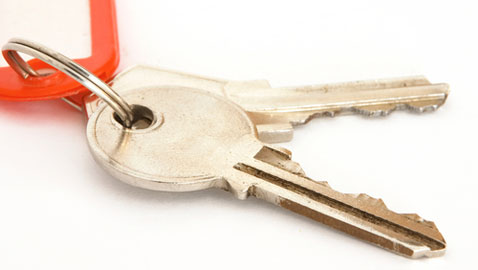25% of those who intend to purchase in the next 12 months will be doing so for the first time, according to Rightmove’s first-time buyer forecast for the final quarter of 2012.
However, this is still well short of the 40% level traditionally seen prior to the credit-crunch.
36% of prospective first-time buyers cite raising enough of a deposit as their single biggest concern and a 22% will only have managed to raise a deposit of less than 10% by the time they are ready to buy, excluding them from the most attractive mortgage deals.
Rightmove’s latest research also finds that while the deposit challenges set by lenders continue to keep first-time buyer levels muted, there are other obstacles for first-time buyers to overcome if they are to realise their ambition of owning a home, including: finding a suitable property to buy, affordability in their neighbourhood, and accessing a competitive mortgage deal.
“The list of challenges to get onto the property ladder seems to be getting longer rather than shorter,” said Miles Shipside, Rightmove director and housing market analyst.
“Raising enough of a deposit stubbornly remains the major concern for intending first-time buyers, but we are now also seeing how the issues facing second-steppers are affecting the fortunes of first-time buyers in terms of finding a suitable property to buy and local affordability.”
29% of prospective first-time buyers indicated that their single biggest concern is ‘finding a suitable property to buy’, up from 24% a year ago. Research from Rightmove recently revealed that the ‘curse of negative equity’ has hit second-steppers – those who would also be ‘first-time sellers’ – hardest. 18% of second-steppers believes they are currently in negative equity and therefore reluctant or unable to come to market.
The shortage of new properties to market from this group in turn restricts the supply of properties that often suit first- time buyers. Rightmove’s research shows that the typical first-time buyer is looking to spend around £150,000, yet the supply of new properties to market at or below this level in October was down 5% compared to last year.
Shipside said: “That the travails of today’s second-steppers can negatively impact tomorrow’s first- time buyers is a great example of how interconnected the housing market is.
“The credit-crunch has hit those who bought for the first time around the peak of the market hardest, with more second- steppers stating that they have fallen victim to the curse of negative equity than any other group of homeowners. The result is that many have become ‘mortgage prisoners’ who are unable to place their home on the market, leaving some areas with a comparative shortage of suitable first-time buyer homes. This also helps underpin prices in an area, further hurting first-time buyer affordability.”
22% are expecting to purchase with a deposit of less than 10%. While some lenders are offering products to first-time buyers at a loan-to-value of 90% or higher, the options are more limited at this level and the interest rates less competitive. However, it is perhaps not surprising that such a number of first-time buyers are looking to purchase despite a sub-10% deposit given that Rightmove’s research also reveals that of those with a deposit of 10% or more, 38% say that they have been actively saving for five years or longer.
Shipside said: “Four out of five first-time buyers expect to have a deposit of 10% or more, showing a growing acceptance of the deposit rules that have become the new norm in their quest to get a roof of their own over their heads.
“Anything less than that will lengthen your odds of being able to jump onto the home ownership ladder, and it seems a bigger deposit is the spring board where most aspiring first-time buyers are headed in their attempt to make that first rung.”
















